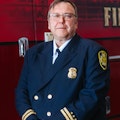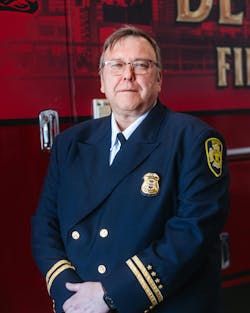EMS: Providers Who Don't Learn and Review Might Suffer, Along with Their Patients
Key Takeaways
- Because EMS providers don’t have the built-in opportunities that other medical professionals have to keep methods and techniques fresh in their mind, EMTs and paramedics must take it upon themselves to regularly review basic material.
- Video laryngoscopy, new medications that EMS providers are permitted to administer and computerized records serve as examples for why EMTs and paramedics must pursue information on the latest trends.
- It’s just as important to understand the benefits of new procedures and why they’re employed as it is to know the procedures themselves.
As an EMS educator, I get to see the eager faces of those who desire to enter our career path. I know that my job is to teach them the skills and knowledge that they need to become successful, but I also get the opportunity to learn from them.
With my most recent class of paramedic students, I noticed something very interesting: Students who lacked a significant amount of exposure to EMS work already started to act like veteran providers. They adopted the mindset that once they learn materials and pass the tests, the information no longer would be needed until they had to sit for the National Registry of Emergency Medical Technicians tests or had to recertify.
I have been practicing EMS for more than 25 years. As is the case with most who are in the field, I don’t review materials like I should. By this, I mean that my “Advanced Cardiovascular Life Support” handbook collects dust in the basement until I need to pull it out again. The same holds true for completing my continuing education credits that are needed for my license. I wait until six months before my renewal date to start them.
Are we doing right by those who we serve and with whom we work when we don’t keep up on the trends in the industry?
Our responsibility
Our learning and review shouldn’t stop just because our credentials and licenses aren’t up for renewal. Many of us don’t have the opportunities that other medical professionals have. Most agencies are short on staff and don’t have the capability to do yearly competencies and extensive case reviews the way that hospitals do. Therefore, we must take it upon ourselves.
The way that we do that is by opening the books that are collecting dust in our basement and garage. Review the basic material that you learned years ago: anatomy and physiology, terminology, indications and contraindications of medicines, and the signs and symptoms for low-frequency calls. Break out those EKG interpretation books and confirm that monitors’ interpretation and analysis are correct.
Trends
We shouldn’t stop at just rereading our old textbooks. More importantly, we also must look at the current trends. There have been some amazing advancements made available to prehospital care providers, including video laryngoscopy, new medications that EMS providers now are able to administer, and technology in the form of computerized records and artificial intelligence.
EMS is evolving rapidly in the manner and way that we care for our patients and each other. Many of our skills come from research, as do the treatments that we provide.
Not only should we be up to date on the current trends, but we also should understand how they came to be. It’s one thing to know how to do a procedure; it’s another to understand the benefits and why we do it.
Stay up to date
Sitting in a classroom to get updates should be just the beginning. EMS providers should strive to learn more information.
I often have heard coworkers say that EMS providers aren’t treated in the way that other healthcare professionals are treated. This might be because of EMS not keeping up to date on a consistent basis. So, dust off those old books and even consider buying a couple of new ones to help those who we are sworn to serve.
About the Author

Robert Olkowski
Robert Olkowski was appointed as assistant superintendent of the Detroit Fire Department’s Emergency Medical Services Division in 2022. In this role, he’s responsible for overseeing the operational aspects of Detroit’s EMS service and works closely with federal, state and local partners to plan for and execute special events in the city. Olkowski began his career at the Detroit Fire Department in 1999 as an EMT and then paramedic (a license he already earned). He rose through the ranks in the EMS Division and was working as a captain in EMS administration prior to his current position. Olkowski graduated from the Staff and Command in Executive Fire Leadership Program and is certified by the Michigan State Police as a Professional Emergency Manager. He also is a licensed EMS instructor-coordinator and teaches EMS licensure classes. Olkowski holds two associate degrees, one in business and one in business administration. He currently serves as the Detroit East Medical Control Authority’s Advisory Chair.
